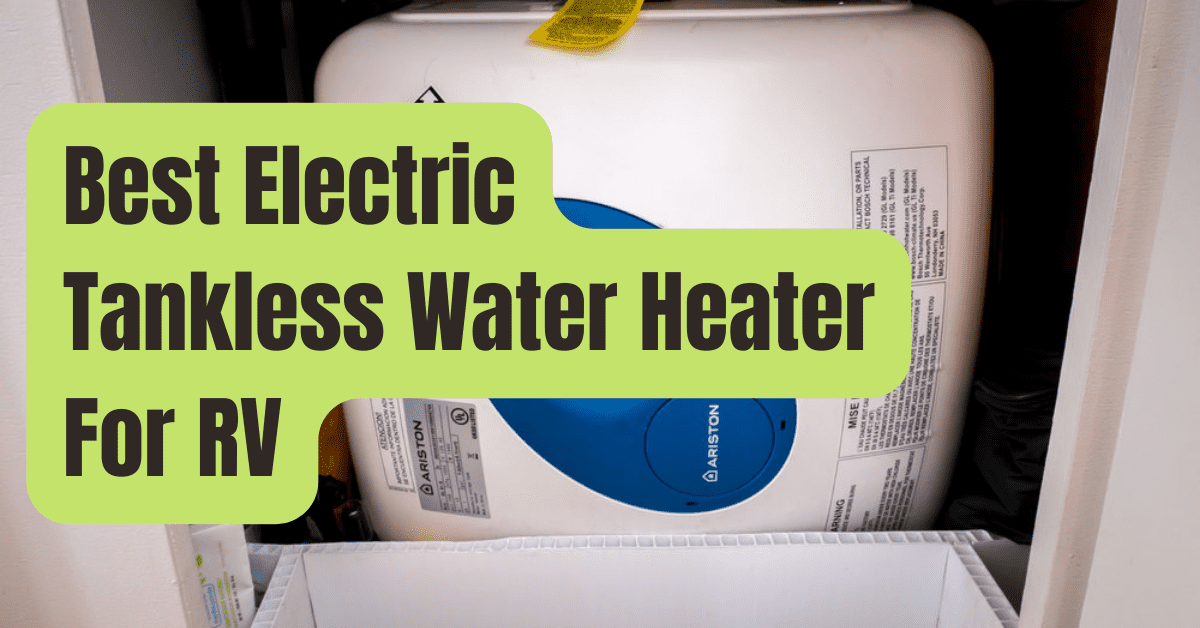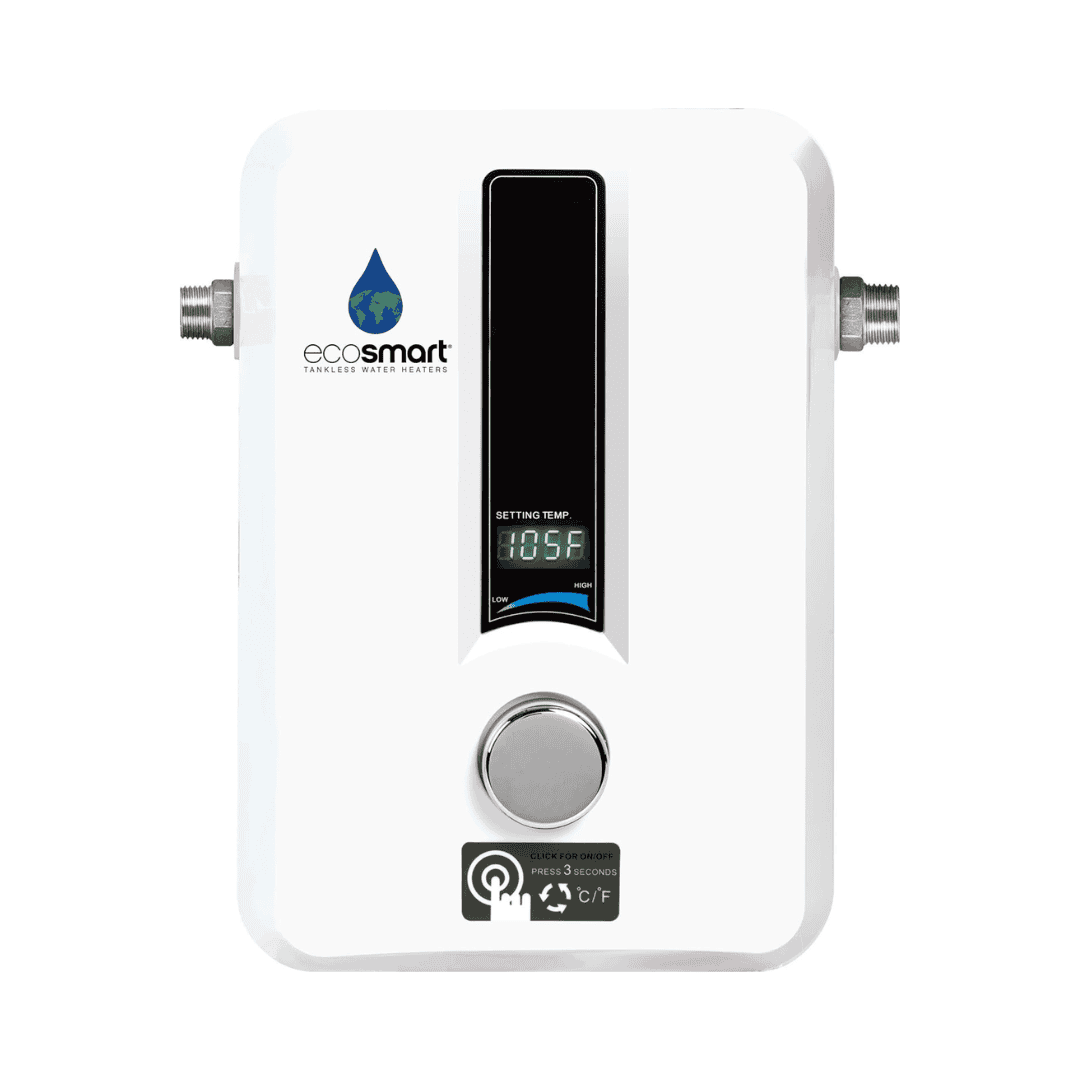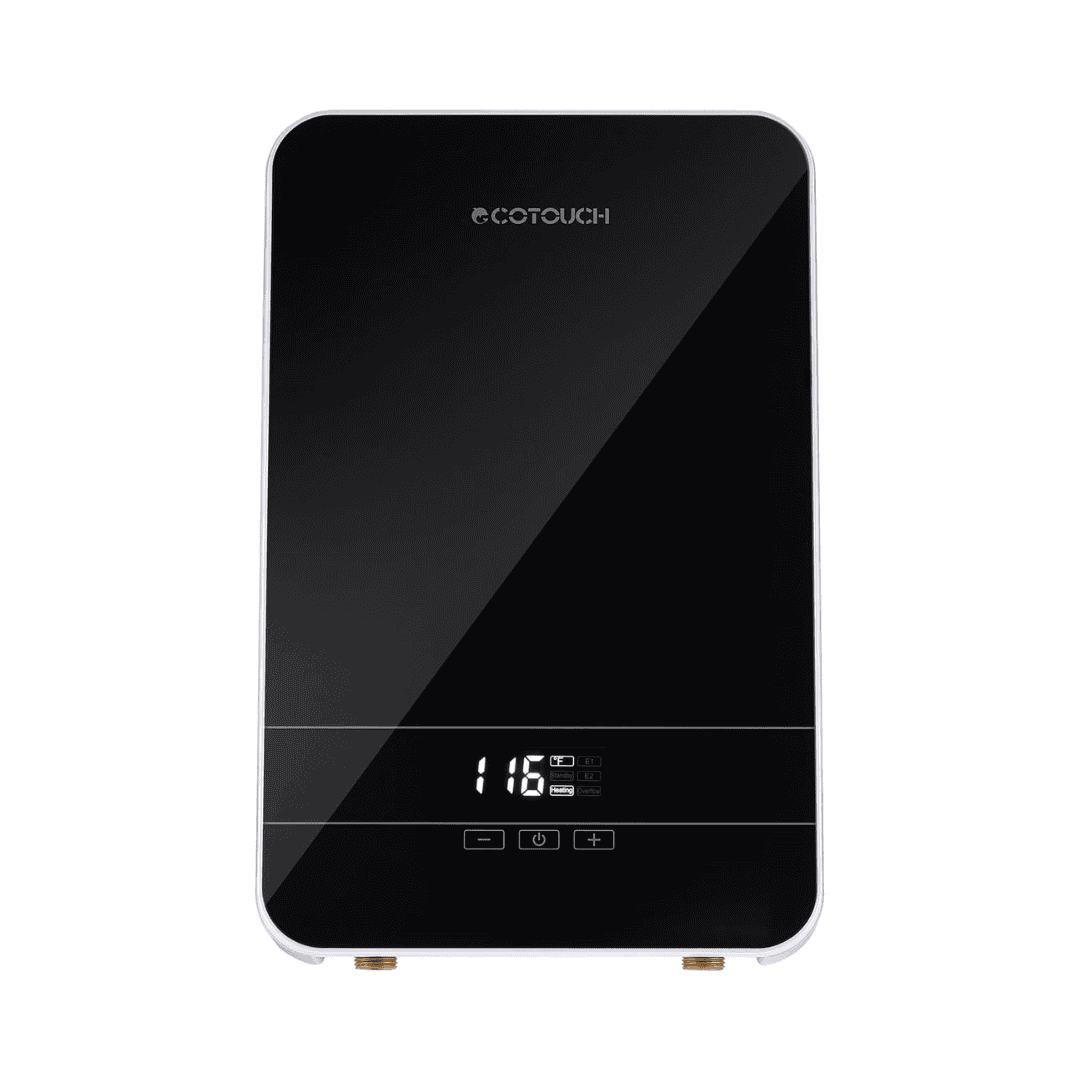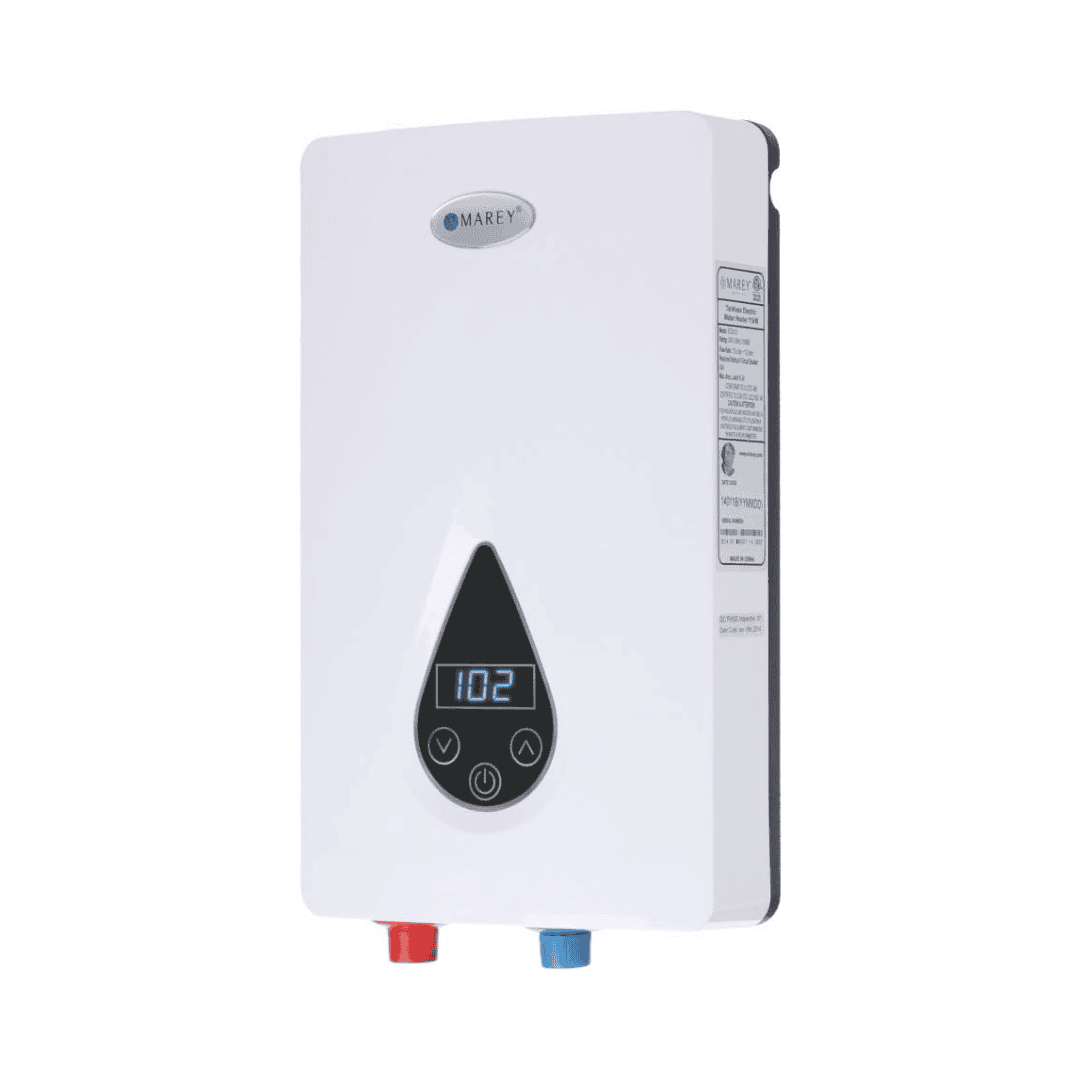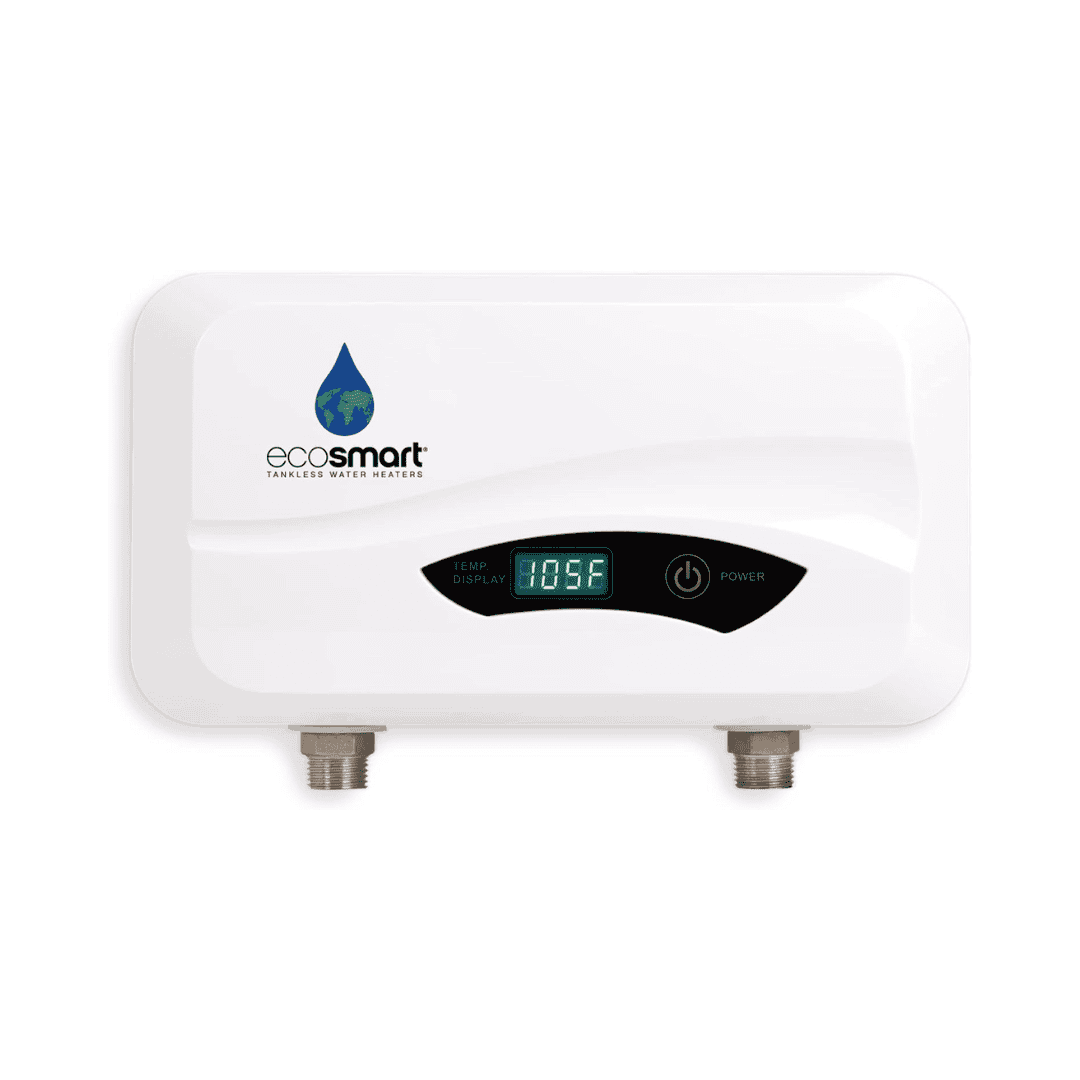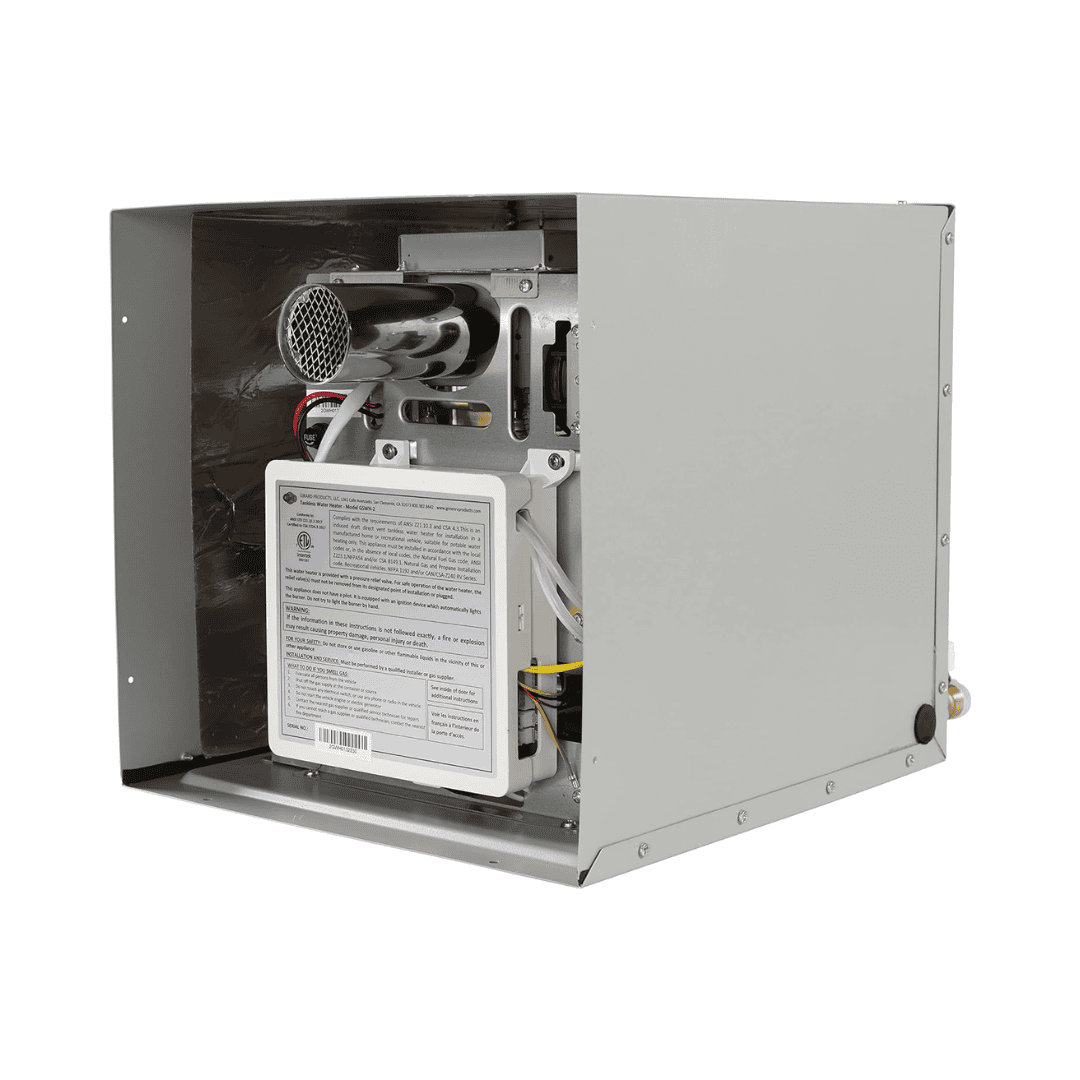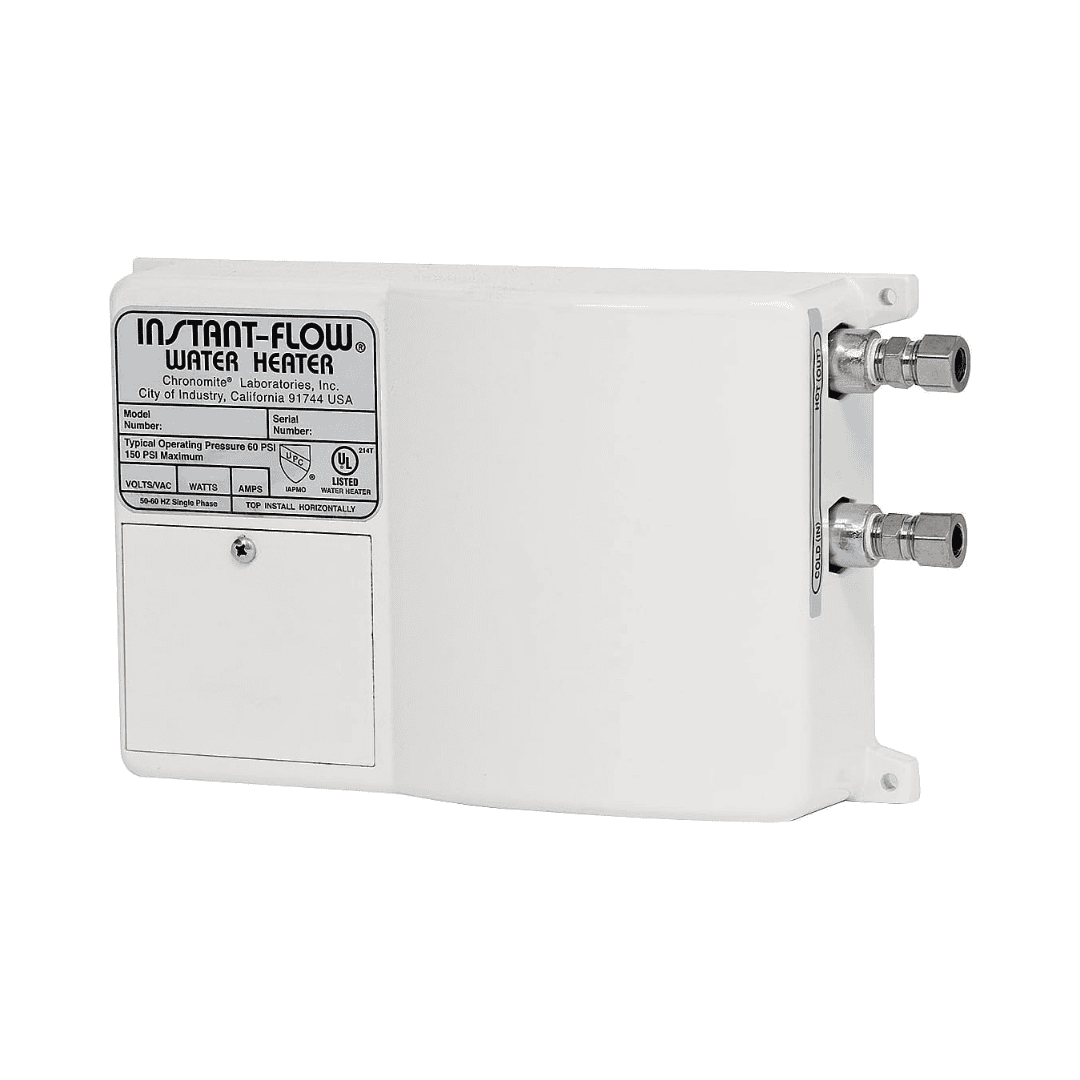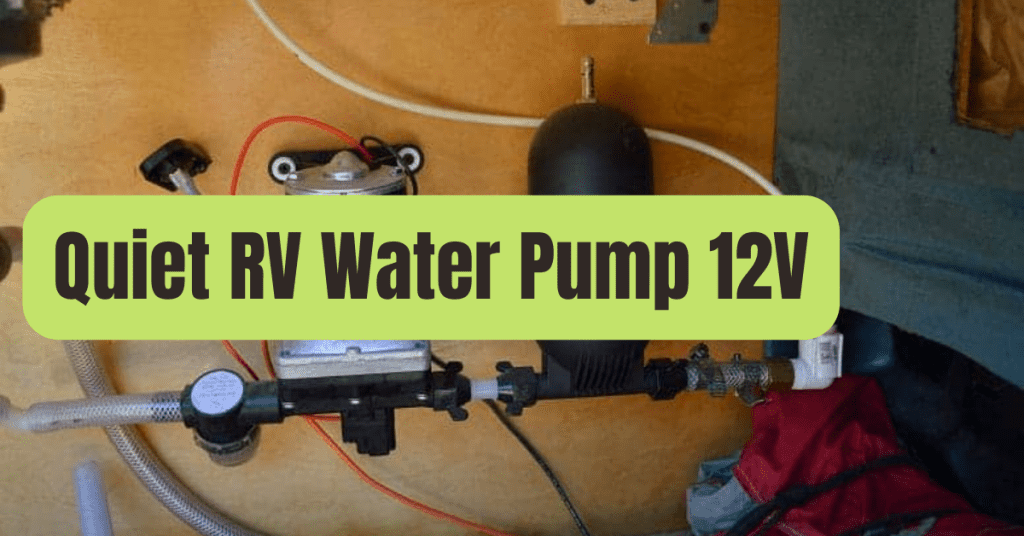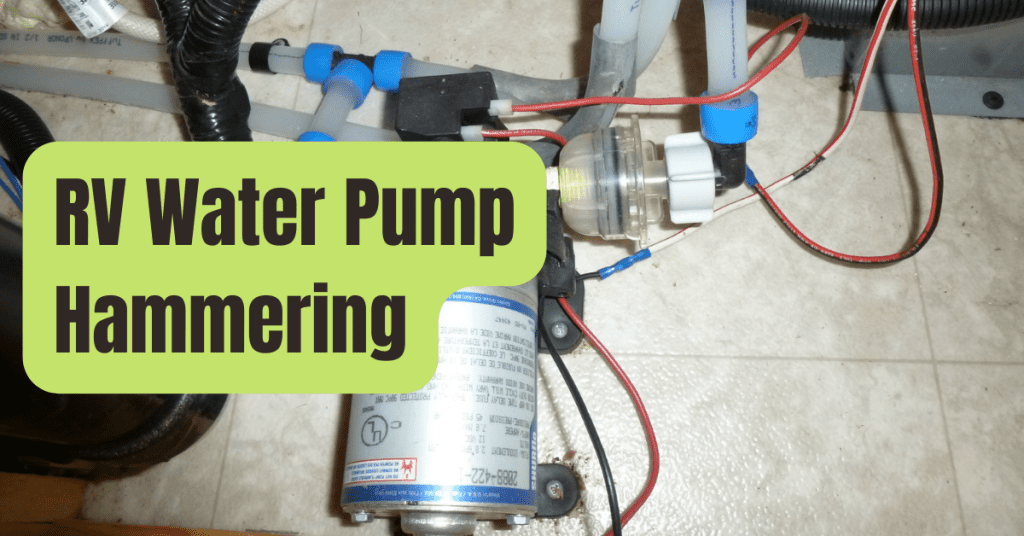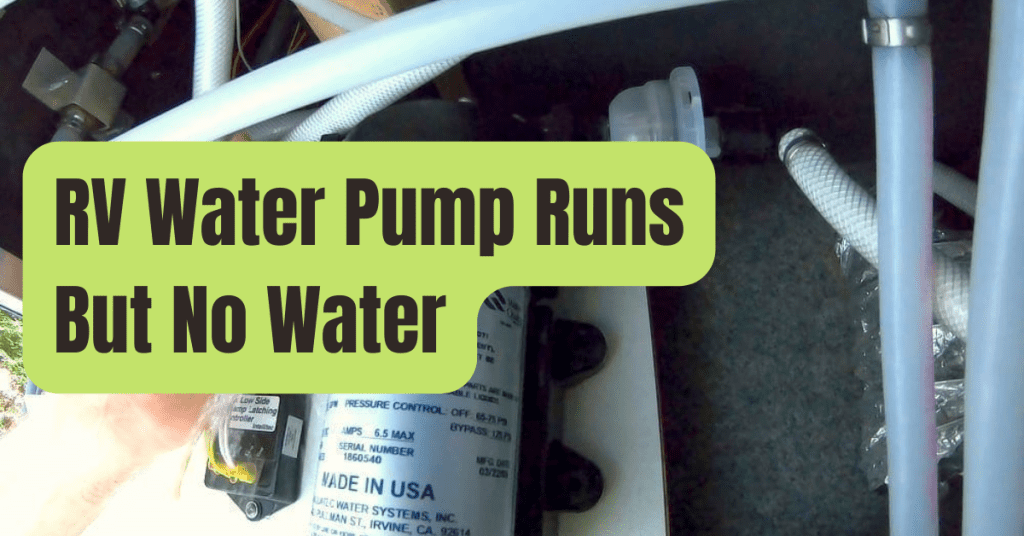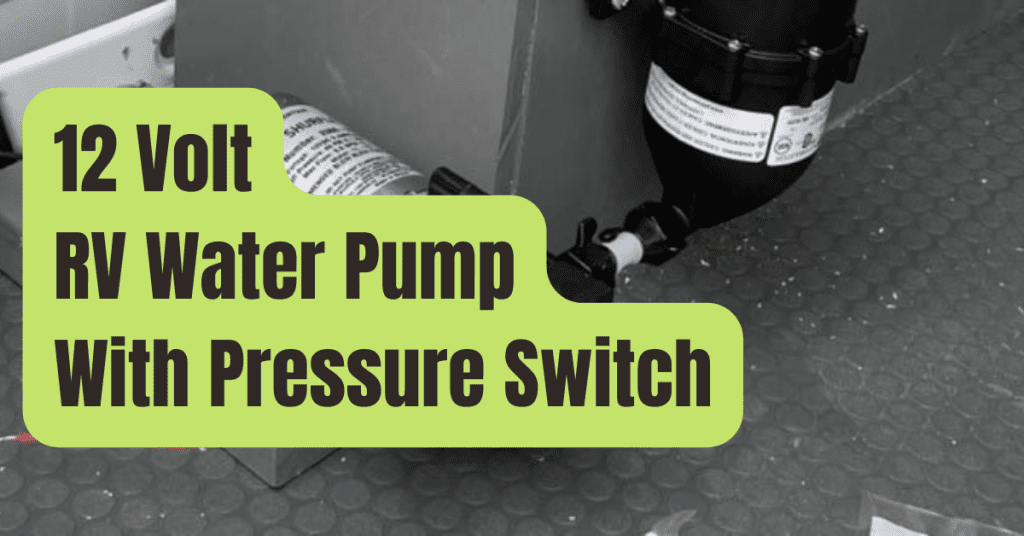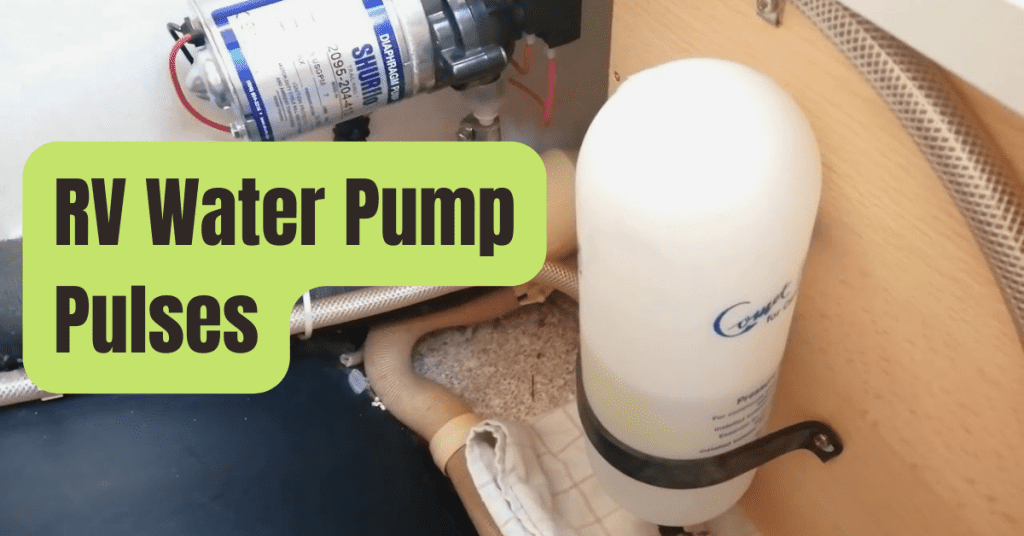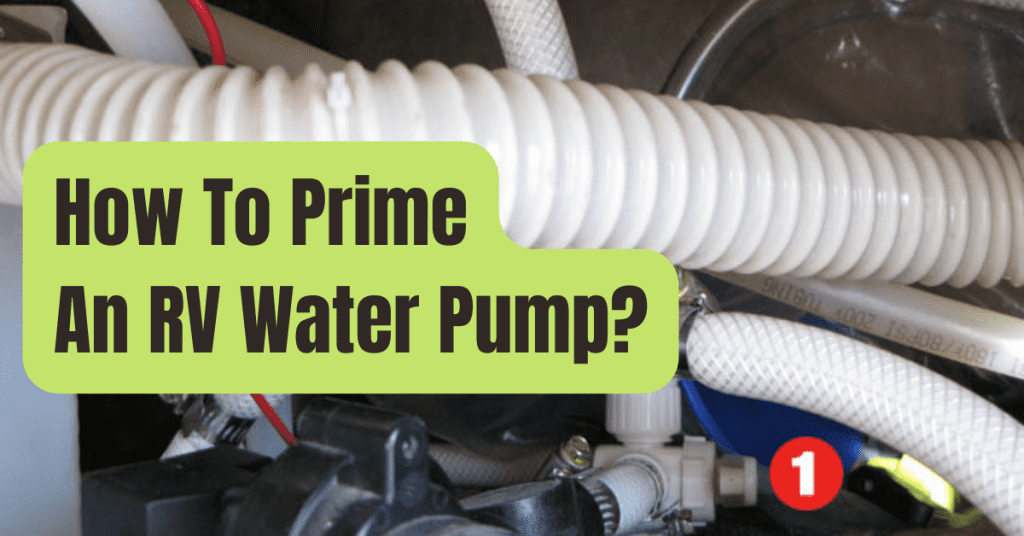All of our evaluations are supported by in-depth analysis, practical testing, and industry knowledge.
We will get a tiny portion of the sales when you use one of our recommended links to make a purchase.
This maintains Jeffsetter’s operations and supports the website.
Consider putting an electric tankless water heater in your RV if you’re wanting to make a wise investment.
Nobody like taking a cold shower, but with a tankless water heater, you won’t ever have to worry about running out of hot water!
Electric tankless water heaters are not only a reliable supply of hot water for your RV, but they are often far more effective than conventional tank water heaters.
Your need to save money or battery charge while using energy is constant.
What other aspects of electric tankless water heaters should you take into account, and what are some benefits and drawbacks? Together, let’s discover more about these distinctive RV appliances.
You already know that you want a tankless electric water heater, right? To see our list of the top 5 electric tankless water heaters for your RV, click this link.
The 5 Best RV-Friendly Electric Tankless Water Heaters
You’ve come to the correct site if you’re prepared to begin looking for the finest electric tankless water heaters for your RV.
Let’s look at some of the top choices that are now available and well suited to fit in your RV.
#1. Best Overall: EcoSmart ECO 8 Electric Tankless Water Heater
- Small device fits almost anyplace in your RV.
- A simple to use display puts you in charge.
- The price is reasonable for the modest size.
- Consult an electrician on your amperage requirements.
One of the top producers of electric tankless water heaters now on the market seems to be EcoSmart.
This is without a doubt because they can accomplish it effectively, affordably, and with consideration for your demands.
The smallest model that EcoSmart offers is the EcoSmart ECO 8.
Numerous customers indicate successfully putting it in their 50 amp travel trailer or fifth wheel.
It is intended to operate off of one 40 amp breaker.
For those of you looking for an electric tankless water heater, there is wonderful news.
Nothing compares to the size of this electric tankless water heater.
It cannot weigh more than 5 pounds and has dimensions of 3.7 x 8 x 11.5 inches.
It is intended to be mounted on your wall so that you can quickly reach the control panel and often check the settings.
You can get 1-2 liters of hot water per minute from this little machine, and it warms up pretty rapidly.
The water pressure needs must be the biggest disadvantage of all tankless water heaters, whether you are considering an electric or a propane choice.
Let’s expand on this now.
Water pressure and camping are perennially contentious issues.
In order for the water to heat up safely and properly with an electric tankless water heater, there must be enough water pressure.
It’s the same with this EcoSmart device.
However, you should have no issue utilizing this unit at high elevations, frigid settings, and pretty much everywhere you require hot water as long as you can provide an adequate level of water pressure.
Due to its tiny size, this specific unit may not be able to accommodate two people cleaning the dishes and having a shower at the same time.
It does, however, include a stylish LED display that is simple to use.
This product has a fair price point as well.
The pricing point makes logical given that it can’t manage a lot of apps at once.
If you’re searching for an electric tankless water heater for your RV, it’s worth giving it a try.
Additionally, EcoSmart provides a wide variety of customer assistance alternatives, such as 24/7 chat or queries.
Given this unit’s electrical requirements, installing it could need the assistance of a certified electrician or some extremely helpful pals.
By clicking here, you can read the reviews on Amazon.
#2. Easiest to Install: Bosch Electric Tankless Water Heater
- Because of its small size, you can install it anyplace.
- In most RVs, a 120 V connection works better.
- The price is reasonable for the simple interface.
- Could need a thermostat to function correctly
This electric tankless water heater can be the best option for you since it is simple to install, the ideal size to fit everywhere, and it is backed by the trusted brand of Bosch.
To make sure that it functions optimally for your RV, let’s discover more about this product right now.
This electric tankless water heater is made to function efficiently with just 120 volt power supply, despite the fact that it isn’t a very appealing appliance.
Although several other models in the same line only need a 30 amp breaker, this electric tankless water heater needs a 40 amp breaker.
This unit’s size is perhaps its best feature.
Given that it is 12.25 x 3 x 6.5 inches in size, you may put it just about wherever that your RV water lines are located, including a cupboard or behind a sink.
This machine will need a particular level of water pressure in order to operate effectively and precisely, just as other tankless water heaters do.
However, this device functions admirably both on the road and in frigid weather.
Since this device only uses energy when you need hot water, you will eventually save money on electricity.
This is the major benefit of all electric tankless water heaters, and Bosch provides you with the hot water you want using an effective heating technique.
Bosch offers limited warranties as additional protection.
Your hot water heater’s heating elements are covered by a 5-year limited guarantee, while all other parts and components are covered by a 1-year warranty.
For such a little device, the warranty mechanism is quite effective.
However, it is definitely worth a go in your RV given this reputable brand name and a fair pricing point.
By clicking here, you can read all the reviews and find out more information about the product on Amazon.
#3. Most Efficient: ECOTOUCH Tankless Water Heater
- Because of its sleek style, it looks nice within your large click here to read those dubious reviews and get more information about the product on Amazon.
- Based on the input temperature, smart temperature control automatically adjusts.
- Fair pricing for a lot of safety and technology
- May need more amps than your RV is capable of providing.
Check out this ECOTOUCH model if you’re searching for something that looks and performs more high-tech.
This electric tankless water heater is well rated and evaluated; it demands a lot of electricity, but it can provide it.
This item, which measures 15.74 x 10.24 x 2.05 inches, can fit almost anyplace.
It has a gorgeous black tempered glass LED display so you can control the temperature and check for problems right on the device.
Speaking of safety measures, this particular model has a ton of them.
This electric tankless water heater’s sophisticated real-time temperature adjusting capabilities are among its most distinctive characteristics.
Let’s expand on it now.
Real-time power input adjustments are made by this machine depending on temperature and flow rate parameters.
It may change the temperature of your hot water so that you don’t burn yourself or receive lukewarm water instead of the degree you like.
You can be protected from overheated water, but it also has many additional safety measures.
It has undergone several testing to assure that it won’t leak or break down, and it can self-modulate.
It also features leak and voltage protection.
Just over one gallon of hot water may be delivered each minute throughout your RV thanks to this electric tankless water heater.
It presumably even works well when there are many simultaneous hot water demands, such for laundry and showers.
Because this specific tankless water heater does not need venting, you may put it on any wall without worrying about investing in a separate vent kit.
It may also be installed without a plumber or electrician thanks to the power wire that is connected.
This device may be used almost everywhere in the US and functions well in frigid climates.
Given its sophisticated temperature control technology, it is reasonably priced and ought to be manageable.
Click here to visit Amazon and read reviews and find out more information about this tankless water heater.
#4. Best on a Budget: Marey ECO150 Tankless Water Heater
- Affordable so you may get what you need without spending a lot of money
- The LCD is easy to see and makes adjusting the temperature simple.
- Low-pressure and simple to assemble
- The typical travel trailer may need more electricity than it can provide.
Marey manufactures a large number of tankless water heaters with stainless steel water channels and a proprietary German design.
You may be shocked to learn that this product is suitable for lesser budgets given these changes.
When you consider all you receive for the price, it is fair.
This wall-mounted device, which measures 8.7 x 3.5 x 14.2 inches and weighs 10 pounds, is equipped to handle all of your rig’s hot water demands.
It must to be tiny enough to fit inside your vehicle almost anyplace.
This unit’s special stainless steel pipes prevent your water lines from rusting or building up any deposits from hard water or chlorine residue.
Given that RV plumbing are not recognized for being the most sturdy, this may be a huge advantage of living in an RV.
The device itself has a water droplet-shaped LED display and is white in color.
This display panel’s simple on/off button and arrows for up/down temperature adjustment make it extremely simple to use.
For many RVers traveling, the fact that this electric tankless water heater can operate at relatively low pressures is a major bonus.
Additionally, it is built to keep a consistent temperature despite changes in the water’s coldness or the weather.
This device is strong and reasonably priced, with a flow rate of over 3 gallons per minute.
Why is there a catch? It’s possible that you don’t have enough dedicated amps to power this specific model.
To help you discover the style that best suits you, Marey provides a wide variety of options.
In terms of the dedicated energy required to operate it, you could find that one of these smaller units fits in your RV better.
Whatever happens, the cost will be reasonable, and you probably won’t need the plumber or electrician.
In any case, Marey provides resources and competitive customer service solutions.
As several of their products made it into our list of propane tankless water heaters, they seem to specialize in tankless water heaters.
Despite the fact that many reviews criticize this machine for consuming a lot of power, you can rest assured knowing that you won’t be using it when you don’t need hot water.
This makes it simple to manage your amperage use when traveling with your rig.
By clicking here, you can see this item in additional sizes and read customer reviews on Amazon.com.
#5. Most Compact: EcoSmart POU 3.5 Electric Tankless Water Heater
- Easy universal installation due to compact size
- Most RVs can use it since it just needs a 30 amp breaker.
- It is simple to use and set up, allowing you to experience it more quickly.
- It could not be effective in cold climates or for several hot water applications.
Think again if you thought we’d already covered the tiniest electric tankless water heater on the market.
Even though this EcoSmart alternative is exceedingly compact, it is nevertheless competent, particularly for your camping requirements.
Another well-known brand of electric or propane tankless water heater is EcoSmart.
They seem to know what they’re doing, and this specific paradigm is promoted as being useful.
A point-of-use water heater in a conventional house is often just intended to power one sink or shower.
A point-of-use water heater, on the other hand, will be more than enough for your requirements if you buy a smaller travel trailer.
As a point of usage, my own electric water heater is also billed.
Everything has to do with how your RV is piped and plumbed.
If you have a Class A motorhome or a fifth wheel that is very big, you may not be able to utilize this option.
However, if you want a minimalist lifestyle, this choice can be ideal for you.
You won’t have any trouble putting this device anyplace in your setup thanks to its dimensions of 7 x 11 x 3 inches and weight of little under 4 pounds.
You can always check the temperature since it includes an easy-to-read LED control panel.
Regarding control, this device lacks some of the bells and whistles seen in some of the other alternatives on our list.
In the event that it ever becomes too hot for you to bear, it is still capable of monitoring your temperature and making adjustments.
Its maximum flow rate is just around half a gallon per minute, which makes it far less effective than the other alternatives on our list.
Its maximum amperage is around 29 amps.
Because of this, it may be used for almost any RV application.
It’s also crucial to keep in mind that if you live in a very cold climate, this unit may not be able to supply enough water pressure.
This unit may not be ideal for you if you often camp in the winter, particularly in the most northern parts of the United States.
However, this electric tankless water heater has a lot to offer for the size, cost, and need for a 30 amp breaker.
This item is an outlier- but in a good way! Most electric tankless water heaters need far more amps to function effectively.
Using this link, you can check it out on Amazon and read the reviews to discover whether this device is right for you.
#6. Girard RV Tankless Hot Water Heater
- RV performance at its best
- 42,000 BTUs
- Temperature regulation
- Simple installation
For me, adding a new component to my setup is only worthwhile if it works effectively and accomplishes the task at hand.
This Girard RV Tankless Hot Water Heater has been added to our list as a result.
Nothing is more frustrating than a hot water heater that takes forever to heat water to an unsatisfactory temperature.
This Girard heater performs well, producing 42,000 BTUs, and features a quiet engine that runs on 12V electricity at less than 3 amps—perfect for RV electrical systems.
I really enjoy the inbuilt microprocessor function since it monitors the flow rate, the temperature of the hot water, and the temperature of the incoming cold water to help keep everything working properly.
This means that I am no longer subject to abrupt spurts of chilly or scorching water, as discussed in more detail in the video below:
I appreciate that the heater has a digital control panel that allows me to choose the temperature I want, ranging from 95° to 124°, and that if there are any problems with the heater, there is an easy-to-use error code system.
It is surprisingly small and installs quickly and easily into a water heater tank cut-out aperture.
The expensive price is the only drawback for me. For a small portion of the price of this Girard water heater, there are other electric tankless RV water heaters available.
This heater is an outstanding discovery if supreme ease and potent performance are high on your list and you have the cash.
#7. Chronomite SR-20L/208 HTR 208-Volt 20-Amp SR Series Tankless Water Heater
- Very light
- Constant supply of hot water
- Efficient in regard to energy
- Simple installation
Nothing is worse than a challenging installation, particularly if it involves RV electrical systems! With dimensions of 11.34 x 6.81 x 3.7 inches, the Chronomite SR Series Tankless Water Heater is also remarkably small and lightweight, coming in at under 5 pounds.
It can fit pretty much anyplace in my rig, and because it’s produced in the US, I feel good about helping out a smaller, regional company.
This heater comes with a 12-month guarantee, which isn’t as long as some of the other heaters on our list, but given the inexpensive cost and energy-efficient performance, it’s a good option for people on a tight budget.
The efficient hot water supply is what I look for in a hot water heater that I put in my vehicle.
This is because while I’m having a shower in my RV, I like a steady flow of water rather than bursts of really hot or ice-cold water.
This heater should be installed within 18 inches of the site of usage, which may not be practicable for drivers of very large trucks.
However, this is doable for smaller RVs like mine, and on low activation, I can anticipate 1.3 liters per minute, and on regular activation, 2.5 liters per minute, providing me the flexibility and control I need from a tankless water heater.
This heater is an excellent choice for RVs to consider because of its easy installation, low cost, and lightweight construction.
Why Select a Tankless Electric Water Heater?
There are several justifications for selecting an electric tankless water heater.
Maybe you want to reduce the amount of power you use overall, or maybe you want extra hot water for you and your RV visitors.
Maybe it’s time to replace your old water heater, and you want to install a more effective one.
Or maybe you want a water heater that is a little smaller than your current one.
Whatever your motivations, installing an electric tankless water heater in your RV has a lot of advantages.
The biggest benefit is that anytime you switch on the hot water at your sink or shower head, you will always have hot water available.
You will ultimately save money on energy with an electric tankless water heater, which is another benefit.
When you’re not using it, conventional electric water heaters keep a few gallons of water warm all day.
Tankless electric water heaters heat water just when it is needed, saving you from wasting energy on heating large amounts of water that won’t be used.
For many RV owners, this may be a very significant benefit.
Tankless electric water heaters are much less costly than they ever were.
One that is expressly designed for RVs is likely to be priced around the same as a more conventional tank water heater.
Regarding an electric tankless water heater, are you still on the fence? Continue reading to find out more about some of the benefits and drawbacks of these heaters, as well as how to switch from the typical propane tank water heater found in an RV to an electric tankless heater.
Electric Tankless Water Heaters: Pros and Cons
Here are some advantages and disadvantages of this new kind of equipment in case you aren’t convinced by the previously mentioned advantages of an electric tankless water heater.
Pros: Hot Water Anytime
The biggest benefit of a tankless water heater, in case you hadn’t figured it, is that hot water is always accessible.
A 4-6 gallon hot water heater is insufficient for the majority of single travelers and couples (much alone huge families!) in today’s RVs, therefore this is a need.
You may get hot water as long as you have water in your freshwater tank or are connected to municipal water, which is always flowing through the pipes in your RV.
You may be surprised to learn that you won’t always have access to hot water if you’re new to RVing.
The majority of full-time RVers that I am aware of miss lengthy, hot showers the most.
You won’t have to worry about skipping out on those residential house showers ever again with an electric tankless water heater!
Cons: High Initial Cost
The high upfront cost of an electric tankless water heater is a possible drawback.
These appliances are not always inexpensive, particularly if you are on a strict spending plan or if your current hot water heater is still functional.
When the time is perfect, it’s always wonderful to consider updating your appliances, but the upfront expense of a tankless water heater can cause you to put off this update longer than you intended to.
You may not feel the need to acquire an electric tankless alternative just yet if you already have a perfectly enough water heater installed.
Should you want expert assistance with this, you should also take the cost of installation into account.
Similar to tank heaters beneath your RV, installing an electric tankless water heater may be challenging.
If you are unsure of your ability to complete a DIY project, you may want to hire a professional to assist with installing this sensitive electrical system.
The initial cost will only increase as a result, so this is something to keep in mind.
Pros: It’s Inexpensive (If You Have Shore Power Connectivity)
Given that most conventional RV water heaters use gas, if your RV has regular shore power access, adding an electric tankless water heater might end up costing you relatively less in the long run.
For instance, if you often stay in RV parks or campsites, electricity is always provided for free there.
You always have access to free hot water if you have an electric water heater.
Efficiency is another consideration in the design of these devices.
An electric tankless water heater is designed to heat your water as effectively as possible, even if your RV is connected to your home’s electrical system.
An electric tankless water heater can be your best choice if you’re seeking for a long-term energy-saving alternative.
Because they only heat water when necessary, these devices use less power overall.
Cons: You May Not Have Enough Amps.
Despite using less power overall than conventional electric water heaters, electric tankless water heaters will consume more electricity than you anticipate, particularly if you’re switching from a conventional propane tank water heater.
If you don’t already have a budget for your new electric tankless water heater and your RV has access to 30 amps of power, you may want to take some time to do some math.
It’s possible that you don’t have enough amps to power your new water heater.
This is why I advise getting an RV multimeter as soon as you start RVing.
To better plan how many amps you have available for any new appliances, you may use this tool to evaluate how many amps the rest of your appliances are using.
Pros: Convenient and Simple to Use
It’s simple to set and forget with an electric tankless hot water heater.
They often have remote controls and simple-to-read LED display displays that indicate the temperature and give you the freedom to modify as you choose.
If you want to wash laundry in your RV or even give a little kid a bath or shower, you can easily adjust the hot water temperature.
For many RVers, the ability to easily modify the temperature may be a godsend.
Con: Installation Could Be Challenging
An electric tankless water heater might be challenging to install on your own, as I previously indicated when discussing installation and where to locate expert assistance.
This may be particularly true if you’re switching from a conventional gas water heater to a tankless electric one.
You’ll need to understand how to rewire various components of your RV, cover or otherwise remove your current propane lines, and more.
Many RVers are not very enthusiastic about this specific appliance installation since you will probably be using both electricity and gas.
Even if it can wind up costing more than you anticipated, take into account expert assistance while installing them.
How to Switch to a Tankless Electric Water Heater
Are you certain that you want to go from a propane tank to an electric tankless water heater? Great! Before you make this very significant shift, there are a few additional things you should think about.
#1. Take Into Account Your Electricity Use
You should think about your power use before switching to an electric tankless water heater, as I have previously indicated.
Some appliances consume less amps than others, and when it comes to RVing, the less amps used, the better.
Nevertheless, the majority of electric tankless water heaters only consume energy when you need hot water, so you probably won’t need to plan for it when you aren’t taking a shower or doing the dishes.
Unless you require a lot of hot water at once, two air conditioners, a microwave, and a hair dryer, you probably won’t need to worry about your power use if you have a 50 amp RV.
#2. Think About Your Propane Use
When it comes to your old water heater, you are probably used to budgeting for your gas consumption.
However, because you’re switching to an electric tankless water heater, you probably won’t have to worry about propane any more.
It may come as a nice surprise to many of you, but having an electric tankless water heater gives you extra propane for cooking and even heating your RV.
By investing in an RV propane barbecue, you can put that gas to good use.
#3. Get Rid of That Old Water Heater
If you want to install an electric tankless water heater, you probably won’t want to leave your old water heater in place inside your RV.
Simply taking up space, the old water heater may even be necessary to make room for the new one.
However, taking anything out of an RV might be a hassle.
If you are new with DIY RVing, you should have the right equipment, check that every fuel connection is disconnected or turned off, and even contact a buddy for assistance.
It is far simpler to remove an old water heater than to install a new one.
Later, however, more on it!
#4. Examine The Wiring In Your RV.
The wiring for your new electric tankless water heater has to be carefully inspected, just as it would be if you were installing a new RV tank monitoring system.
To securely power your new device, your electric tankless water heater will require dependable and long-lasting wiring.
If you are unfamiliar to this procedure, you might think about hiring an electrician or RV repair expert to guide you.
Once again, confirm that you are not using shore power and that your RV’s battery is completely unplugged.
While examining possibly naked wires, you don’t want to take the chance of hurting yourself.
#5. Install Your New Tankless Electric Water Heater.
It may be harder than you think to install your new electric tankless water heater.
It would be helpful to have a buddy who is knowledgeable about this kind of stuff, or you could just pay an RV repair expert to do the task for you.
Read up on the work in advance if you want to install your new electric tankless water heater yourself.
Always carefully read the instruction booklet that came with your new equipment, and take your time to ensure the work is completed correctly.
#6. Keep Your Water Pressure in Mind
What is a fact regarding electric tankless water heaters that you may not be aware of? It’s the truth that different water pressures might be difficult for the majority of tankless water heater solutions.
When traveling in an RV, water pressure is always a factor to take into account.
You may connect a variety of pressure regulators to your hoses to prevent damage to your pipes from city water and other public water connections.
With your new water heater, you should also think about how crucial water pressure is.
Many electric tankless water heaters may be quite problematic for RVers since they often won’t run if the pressure isn’t at a specified level.
All tankless water heaters, however, need a certain amount of water pressure that your RV pipes can withstand.
Although you may have to take off your pressure regulator, it is often a comfort to know that you will have hot water.
#7. The Question of Boondocking
If you want to go boondocking regularly, electric tankless water heaters may not be the best choice.
Boondocking, commonly referred to as dry camping, is when you set up camp without any connections or access to shore power.
For the majority of contemporary RVs, boondocking is popular and relatively feasible, but an electric tankless water heater may struggle in these conditions.
This is due to the likelihood that all of your utilities, including electricity, are more expensive.
However, there are several approaches of overcoming this.
Make sure you choose an RV battery designed specifically for boondocking.
This can run your tankless water heater for the length of your vacation and will help to allay many of your electricity-related worries.
You should also take into account other solar-powered devices, such as RV freezers.
However, it will make your rig even more boondock ready.
Installing solar may not be a relatively inexpensive solution to your electric tankless water heater power sources.
Tankless Electric Water Heater Alternatives
A 240-volt connect up is often required in place of a 120 V hook up for many electric tankless water heaters.
This basically implies that since these gadgets use so much power, the majority of RVs can’t manage them.
This idea can make you prefer a different option.
Check out these electric tankless water heater options if you aren’t quite convinced on them or are concerned about how much power they will need to provide a consistent supply of hot water for you.
#1. Tankless Propane Water Heaters
Another choice for tankless water heaters in RVs is propane, which many RVers seem to prefer over other fuel types.
This may be due to the fact that many RV owners enjoy boondocking and propane functions best in off-grid settings.
Since most RV water heaters are fueled by propane, propane tankless water heaters are also preferable replacements for your current water heater.
Even though you should always use caution while installing a new water heater, doing so could be less difficult than switching to an electric water heater.
Since the total cost is comparable, many RVers use propane tankless water heaters with few to no problems over time.
If you use a lot of energy and it appears like there isn’t much available amperage, this is absolutely something to think about.
Some of the top propane tankless water heaters on the market right now are already on our list.
Check them out today by clicking here!
#2. Heaters for Electric Water (With Tanks)
There are various electric water heaters with tanks that you might consider buying for your RV if you like the concept of an electric water heater but are dissatisfied with any of the tankless choices.
In my antique vehicle, I switched from a gas water heater that was never functional to a brand-new Bosch electric water heater.
Although this product’s capacity is just four gallons, it fits in my trailer without any trouble.
Although electric water heaters may use a significant amount of power, installing them is often simpler and they are typically less expensive than tankless solutions.
If you’re on a tight budget and feel handy, you can think about skipping the additional storage and getting an electric water heater with a tank instead.
#3. Solar Sprinkling
You can think about making your own solar shower if you only want to go camping during the warm summer months.
The more adventurous camper or the RVer on a tight budget may find these DIY choices to be quite helpful.
A solar-heated bag and an attachable shower handle or head are used in these showers.
Even if you’re using them outside, you may construct or buy ones that are pressured to offer you a more authentic shower experience.
However, because of their limited water capacity, you may not want to take a shower in your swimming suit outside of your RV.
Those of you who wish to utilize your RV and have hot water in the cooler months cannot use this option.
Final Reflections
With our list of the best products in mind, finding an electric tankless water heater for your RV will be much simpler.
When you go out on your journey, you can rest easy knowing that you have enough hot water for the whole family.

